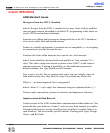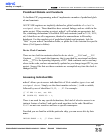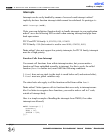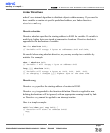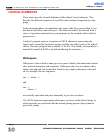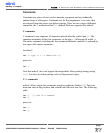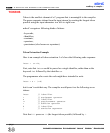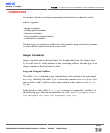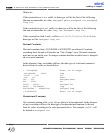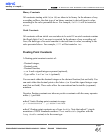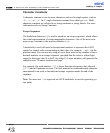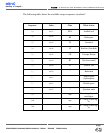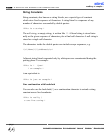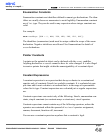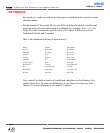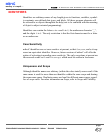
Otherwise:
If the constant has a
U or u suffix, its data type will be the first of the following
that can accommodate its value: unsigned short, unsigned int, unsigned
long int.
If the constant has an
L or l suffix, its data type will be the first of the following
that can accommodate its value:
long int, unsigned long int.
If the constant has both U and L suffixes, (ul, lu, Ul, lU, uL, Lu, LU, or UL), its
data type will be
unsigned long int.
Decimal Constants
Decimal constants from -2147483648 to 4294967295 are allowed. Constants
exceeding these bounds will produce an “Out of range” error. Decimal constants
must not use an initial zero. An integer constant that has an initial zero is interpret-
ed as an octal constant.
In the absence of any overriding suffixes, the data type of a decimal constant is
derived from its value, as shown below:
< -2147483648 Error: Out of range!
-2147483648 .. -32769 long
-32768 .. -129 int
-128 .. 127 short
128 .. 255 unsigned short
256 .. 32767 int
32768 .. 65535 unsigned int
65536 .. 2147483647 long
2147483648 .. 4294967295 unsigned long
> 4294967295 Error: Out of range!
Hexadecimal Constants
All constants starting with
0x (or 0X) are taken to be hexadecimal. In the absence
of any overriding suffixes, the data type of an hexadecimal constant is derived
from its value, according to the rules presented above. For example,
0xC367 will
be treated as
unsigned int.
mikroC
- C Compiler for Microchip PIC microcontrollers
mikroC
making it simple...
40
MikroElektronika:
Development
tools
-
Books
-
Compilers
page



